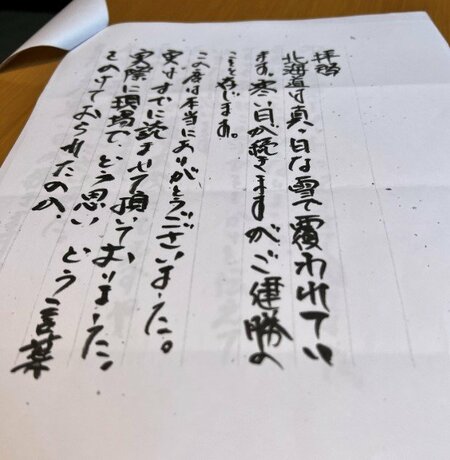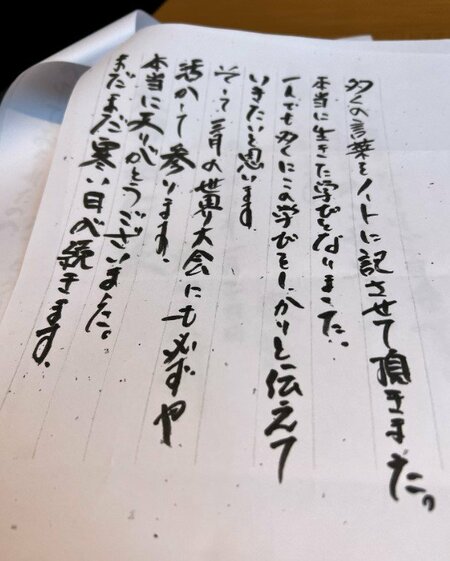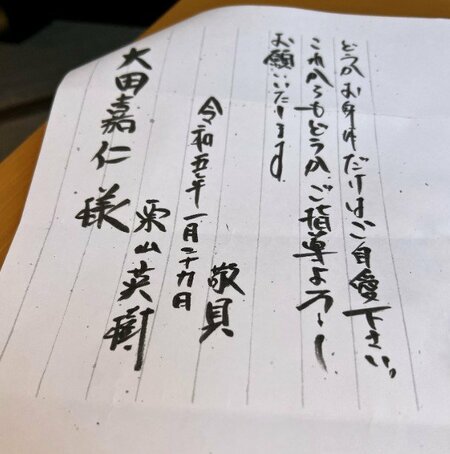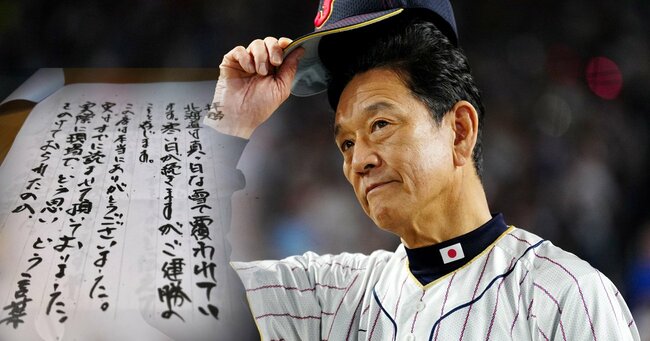Originally published in Japanese on Mar. 23, 2023
Divine wisdom
Fueling Japan’s victory in the WBC were the teachings of Kazuo Inamori, the “god of management.” But how did the wisdom of the founder of Kyocera and KDDI lead Japan to the top spot of the global baseball tournament?
The WBC final was held on March 21 in the U.S. (22 in Japan time), home turf for the opposing team and also the birthplace of baseball. Shohei Ohtani closed out the 9th inning by striking out Mike Trout, his fellow star on the Los Angeles Angels, leaving all of Japan in a frenzy. After their dramatic comeback victory against Mexico in the semifinals, Samurai Japan once again became global champions after a 14-year hiatus.
Japan’s powerful roster of players was an undeniable factor in its victory, but there is no question that Manager Hideki Kuriyama was a driving force behind the team’s success. It was Kuriyama who cultivated the talent of Ohtani, the two-way superstar who played a major role in the WBC, during his time with the Hokkaido Nippon-Ham Fighters.
Kuriyama has long admired Inamori’s philosophy of management. Just prior to the WBC, Kuriyama once again immersed himself in Inamori’s teachings using a newly published book and put them to work as a coach. Inamori’s wisdom seems to have played a large role in Japan’s victory, as Kuriyama sent a personal letter to the book’s author.
The book in question is Kazuo Inamori: 15 Words That Will Be Useful from Tomorrow, published in January 2023. It was written by Yoshihito Ota, a “confidant among confidants” to Inamori and the former managing secretary of Kyocera and former assistant to the chairman of Japan Airlines. Inamori called him the “second-in-command,” and he served as a close associate to Inamori for about 30 years, including as the head of the Kyocera secretary’s office. In his book, Ota explains Inamori’s philosophy in plain language and illustrated episodes, using “15 words and phrases” that he learned during his long tenure as an aide to the management guru.
1. Humility is a “talisman.”
2. Can one consider success an “ordeal?”
3. Speak honestly, be scolded honestly, and reflect honestly.
4. Life is longer after death.
5. One cannot deny the “past.”
6. “Cowards” can prepare carefully.”
7. Bad thoughts lead to a worse life.
8. If you pay attention to the geisha, the geisha will be happy. That is why customers are happy.
9. There are no mistakes if one makes decisions based on “what is right as a person.”
10. Things do not go well for those who want to avoid being hated.
11. More than yesterday, today. More than today, tomorrow. More than tomorrow, the day after tomorrow.
12. What happens when you “creatively tackle” cleaning?
13. An “obsession” with a job can ruin it.
14. A good leader is one who brings out the “power on site.”
15. Think about it until you see it.
“Why haven’t you given me the blended pepper!” Ota catches the reader by surprise with an opening anecdote about Inamori getting angry in the chairman’s office some 30 years ago.
The true meaning of his “anger” is left to the reader, but Ota said when he wrote the book that he “felt that Mr. Inamori had been deified too much by being called the ‘god of management.’”
“I wanted him to feel more human and familiar," he said. “Rather than a god-like figure preaching lofty ideals.” In fact, after the book’s publication, executives and employees at Kyocera, which Inamori founded, and Japan Airlines, which he led during restructuring, said that they now have a better understanding of his personality.
Personal touch
One day, upon learning that Kuriyama admired Inamori’s management philosophy, Ota sent him a free copy of the new book. He later received a handwritten letter of gratitude from the baseball manager. With the consent of both Kuriyama and Ota, Diamond has published the contents of the letter:

Dear Sir,
Hokkaido has been blanketed with fresh white snow. The cold weather continues, but I hope that you are keeping well.
Thank you very much for the other day.
Actually, I had already read your book.
What was he actually thinking, and what did he actually say on the job?

My notebook is filled with phrases.
It was truly a lived learning experience.
I would like to make sure this learning is passed on to as many people as possible.
And I will definitely put it to use in the world tournament in March.
Thank you very much.
The cold weather will continue for some time yet.

Please take care of yourself.
I would be grateful for your continued guidance.
Yours sincerely,
January 29, 2023
Hideki Kuriyama
To Mr. Yoshihito Ota

The letter is dated January 29, just prior to the national team camp in February 2023. Kuriyama was appointed manager of the national team in December 2021, and after that, he was busy recruiting players and handling other matters. He was grateful enough to Ota that he took time out of his schedule to write the letter by hand.
Kuriyama’s letter shows that Ota’s stories of his time with Inamori were practically useful to the manager of the national baseball team, the leader of a group that would compete at the highest level of world sports.
Ota said that he was “extremely happy” that Kuriyama said that he “would put it to use in the world tournament (WBC) in March,” and that he actually went on to win the WBC. It is clear that Inamori’s philosophy played a role in Japan’s WBC victory.
Ota is also active in business, serving as chairman of MTG, which develops the “Sixpad” training equipment. He is also taking on new challenges, such as the development and sales of “EVERING,” a prepaid ring-shaped wearable device compatible with Visa touch payment, to embody the Inamori philosophy that he has learned over the years.
As a side note, it was through an introduction from a former teacher at university that I had the opportunity to meet Ota for the first time at the end of February. During his life, Inamori emphasized the importance of living a life based on gratitude, inspiring Kuriyama. I was also raised to be grateful, including for my parents and my time on the middle and high school baseball teams in the city of Nishinomiya, the host of Japan’s Koshien baseball tournament.
Friendship and gratitude enrich our lives. For myself—who is not far from reaching the milestone age of 40—the unlikely story of Kuriyama and Ota was an excellent opportunity to be reminded of this truth.
(Originally written in Japanese by Kohei Takeda, translated and edited by Connor Cislo)









